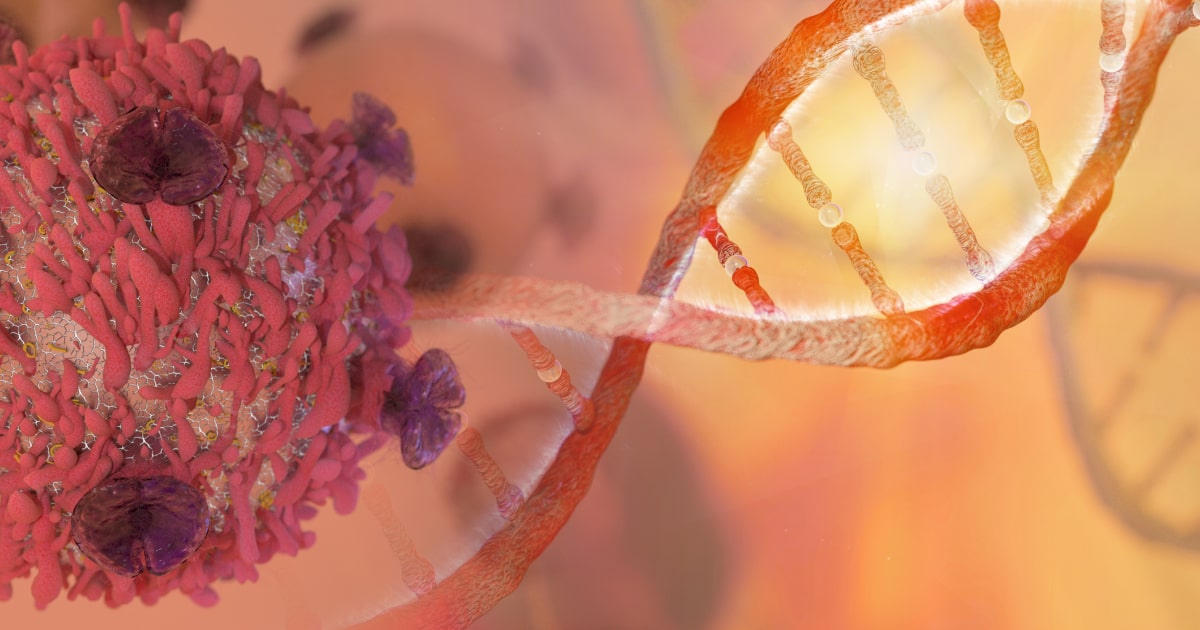
Expert Reviewed By: Dr. Brandon Colby MD
MPV17-related disorders are a group of rare genetic conditions that can have a significant impact on an individual's health and quality of life. By understanding the nature of these disorders, learning how to diagnose them, and exploring the potential benefits of genetic testing, we can better support those affected and their families. This article will delve into the complex world of MPV17-related disorders, providing a comprehensive overview of their causes, symptoms, and the role of genetic testing in their management.
What are MPV17-Related Disorders?
MPV17-related disorders are a group of genetic conditions caused by mutations in the MPV17 gene. This gene plays a crucial role in the function of mitochondria, the energy-producing structures within our cells. When the MPV17 gene is mutated, it can lead to a range of mitochondrial dysfunction and result in various health problems. Some of the disorders within this group include:
- Navajo neurohepatopathy (NNH)
- Mitochondrial DNA depletion syndrome 6 (MTDPS6)
- MPV17-related hepatocerebral mitochondrial DNA depletion syndrome (MTDPS)
These conditions can manifest in a variety of ways, with symptoms ranging from liver disease, neurological problems, and developmental delays. Due to the rarity and complexity of MPV17-related disorders, they can be challenging to diagnose and manage.
Diagnosing MPV17-Related Disorders
Diagnosing MPV17-related disorders can be a complex process, as the symptoms can vary significantly between individuals and may overlap with other conditions. Typically, the diagnostic process will involve a combination of clinical assessments, imaging studies, and laboratory tests. Some of the key steps in diagnosing MPV17-related disorders include:
- Clinical examination and assessment of symptoms
- Blood tests to assess liver function and measure lactate levels
- Imaging studies, such as MRI or CT scans, to evaluate the brain and liver
- Biopsy of affected tissues, such as liver or muscle, to assess mitochondrial function
While these assessments can provide valuable insights into the nature of an individual's condition, they may not always lead to a definitive diagnosis. In such cases, genetic testing can play a crucial role in confirming the presence of an MPV17-related disorder.
The Role of Genetic Testing in MPV17-Related Disorders
Genetic testing can be a powerful tool in the diagnosis and management of MPV17-related disorders. By analyzing an individual's DNA, it is possible to identify the specific mutations in the MPV17 gene that are responsible for their condition. This information can not only confirm a diagnosis but also provide valuable insights into the potential progression and severity of the disorder.
Diagnostic Genetic Testing
Diagnostic genetic testing can be used to confirm a suspected diagnosis of an MPV17-related disorder. This typically involves sequencing the MPV17 gene to identify any mutations that may be causing the individual's symptoms. In some cases, additional genetic testing may be recommended to rule out other conditions with similar symptoms.
Prenatal Genetic Testing
For families with a known history of MPV17-related disorders, prenatal genetic testing can be an invaluable tool in planning for the future. This testing can be performed on a sample of amniotic fluid or chorionic villus tissue, allowing for the detection of MPV17 mutations in a developing fetus. By identifying affected pregnancies early, families can make informed decisions about their options and prepare for the potential challenges of raising a child with an MPV17-related disorder.
Carrier Testing
Carrier testing can be beneficial for individuals with a family history of MPV17-related disorders, as it can identify whether they carry a mutated copy of the MPV17 gene. If both parents are found to be carriers, they may choose to undergo prenatal genetic testing or explore other reproductive options, such as preimplantation genetic diagnosis (PGD) or the use of donor gametes.
In conclusion, MPV17-related disorders are a complex and diverse group of genetic conditions that can have a significant impact on an individual's health and well-being. By understanding the nature of these disorders, utilizing diagnostic tools, and embracing the potential of genetic testing, we can better support affected individuals and their families in navigating the challenges of these rare conditions.
About The Expert Reviewer
Dr. Brandon Colby MD is a US physician specializing in the personalized prevention of disease through the use of genomic technologies. He’s an expert in genetic testing, genetic analysis, and precision medicine. Dr. Colby is also the Founder of and the author of Outsmart Your Genes.
Dr. Colby holds an MD from the Mount Sinai School of Medicine, an MBA from Stanford University’s Graduate School of Business, and a degree in Genetics with Honors from the University of Michigan. He is an Affiliate Specialist of the American College of Medical Genetics and Genomics (ACMG), an Associate of the American College of Preventive Medicine (ACPM), and a member of the National Society of Genetic Counselors (NSGC)